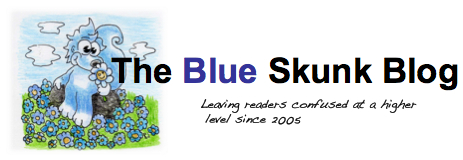Principles vs rules
 Saturday, December 30, 2017 at 07:35AM
Saturday, December 30, 2017 at 07:35AM 
from Burn Your Rule Book and Unlock the Power of Principles
I've long advocated for principles over rules; for guidelines over directives; for asking students to think about their actions and behaviors over simply following directions.
I have found that library users need three behavioral guidelines (Beating the Study Hall Syndrome, 1995):
- be doing something productive
- be doing it in a way that allows others to be productive
- be respectful of other people and their property.
Technology users need to follow three ethical guidelines:
- Privacy - I will protect my privacy and respect the privacy of others.
- Property - I will protect my property and respect the property of others.
- a(P)propriate Use - I will use technology in constructive ways and in ways which do not break the rules of my family, church, school, or government.
I have three commandments for a successful library program:
- Thou shall develop shared ownership of the library and all it contains.
- Thou shall have written annual objectives tied directly to school and curriculum goals and bend all thy efforts toward achieving them.
- Thou shall take thy light out from under thy damn bushel and share with others all the wonders thou doest perform.
To maintain a "radical center of education" philosophy, I have ten guidelines:
- Adopt an “and” not “or” mindset.
- Look for truth and value in all beliefs and practices.
- Respect the perspective of the individual.
- Recognize one size does not fit all (kids or teachers).
- Attend to attitudes.
- Understand that the elephant can only be eaten one bite at a time.
- Make sure everyone is moving forward, not just the early adopters.
- Don’t be afraid to say, “I don’t know.”
- Believe measurement is good, but that not everything can be measured.
- Know and keep your core values.
The primary difference between rules and principles, of course, is that those following principles must actually think about their actions. They must interpret both the guideline and their own behaviors.
Like all interpretations, there can be disagreement. In the first set of principles, what one student or teacher might consider "productive" might not be considered productive by the librarian or principal. I have found that simply asking why an activity could be considered productive helps clarify the situation and resolved any conflict that the ambiguity might create.
A world in which we all consider our behaviors and actions rather than simply follow rules allows for thoughtfulness, empathy, equity, and creativity. Let's give all our students the gift of good decision-making by stressing principles rather than rules.








Reader Comments